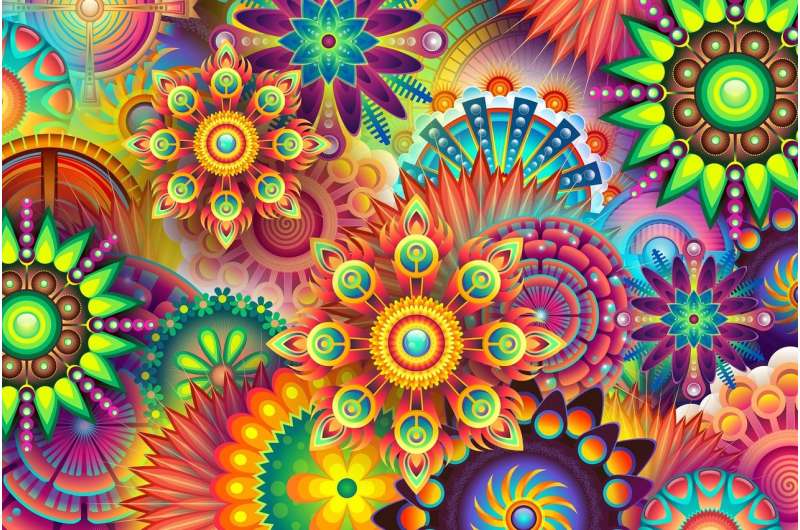The Growing Movement of Religious Groups Advocating for Psychedelic Sacraments

Religious communities are increasingly advocating for the use of psychedelics as sacred tools for spiritual growth and healing, supported by scientific research and legislative changes.
In recent years, there has been a notable surge in religious and spiritual communities advocating for the use of psychedelics as sacred tools for spiritual growth and divine connection. This movement is supported by a coalition of scientists, politicians, and clergy members who see these substances as gateways to profound mystical experiences.
Historically, certain indigenous and spiritual traditions have incorporated plant medicines like peyote, psilocybin mushrooms, and ayahuasca into their sacred rituals, viewing them as divine gifts that facilitate healing and spiritual insight. Modern advocates, including some clergy and religious organizations, now argue that these substances should be recognized as legitimate sacraments, expanding their use in contemporary spiritual practices.
Legislative changes in the United States reflect this shift. States such as Texas and Arizona have recently passed laws allocating funds for research into the therapeutic potential of psychedelics like ibogaine for treating opioid addiction, PTSD, and mental health issues. Similarly, other states like Oregon, Colorado, Kentucky, and Georgia have legalized ketamine therapy for mental health treatment. These legal developments are driven by accumulating scientific evidence suggesting the safety and efficacy of psychedelics in addressing conditions such as depression, trauma, and addiction.
Psychedelics are a broad class of psychoactive substances that influence perception, mood, and cognition by interacting primarily with serotonin receptors. Classic psychedelics include LSD, psilocybin, and mescaline, while others like MDMA and ketamine are often grouped with them due to their therapeutic potential.
Research consistently indicates that these substances can induce significant spiritual and mystical experiences. Studies involving DMT, psilocybin, and ibogaine report high percentages of participants experiencing feelings of divine connection, visions, and profound insights. For example, ibogaine, a plant-derived compound native to West Africa, has shown promise in reducing depression, PTSD, and opioid addiction, with recent studies demonstrating promising results for mental health recovery.
The involvement of religious groups in advocating for psychedelics as sacramental is a notable development. Several clergy members, including Episcopal ministers, Catholic priests, rabbis, and Zen monks, have participated in research and publicly endorse their spiritual use. For many, psychedelics serve as a 'chairlift to God,' enabling deeper spiritual engagement and divine connection during rituals.
Native American tribes have long legally used peyote in religious ceremonies, and more recently, new churches incorporating ayahuasca have gained recognition, with some securing legal exemptions for its sacramental use. These practices emphasize the sacred and spiritual significance of plant medicines in fostering a direct divine experience.
However, experts caution about the risks associated with psychedelic use. Potential adverse effects include anxiety, paranoia, and, rarely, psychotic episodes, especially in individuals with a history of mental illness. Safe use requires trained facilitators and proper medical oversight to mitigate these risks.
In summary, the intersection of science, spirituality, and legislation is fueling a renaissance of sacred psychedelic use. As research continues to reveal the profound spiritual and therapeutic benefits of these substances, ongoing dialogue about their role in faith and healing is likely to expand.
Source: https://medicalxpress.com/news/2025-08-religious-groups-psychedelics-sacrament.html
Stay Updated with Mia's Feed
Get the latest health & wellness insights delivered straight to your inbox.
Related Articles
Societal Inequality and Its Impact on Children's Brain Development
A groundbreaking study links income inequality with structural brain changes in children, highlighting the impact of societal disparities on mental health and development. Reducing inequality could promote healthier neurodevelopment and well-being.
Supporting Children with Social Anxiety: Effective Strategies for Parents
Learn how parental warmth, acceptance, and balanced control can help reduce social anxiety in children and adolescents, promoting healthier social development.
The Most Common Mistakes People Make When Consoling Someone After Pet Loss and What to Say Instead
Learn how to offer meaningful support after a pet's death by avoiding common mistakes and recognizing the significance of pet grief as a valid and profound emotional experience.



